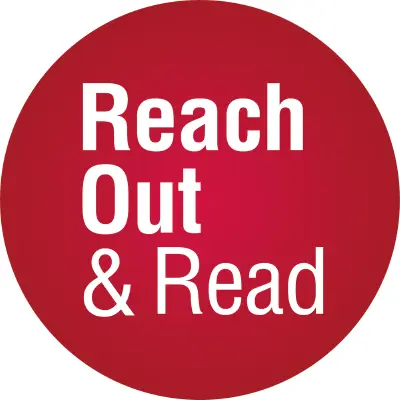
Reach Out and Read
125 episodes Last Updated: Dec 26, 24
From the national organization Reach Out and Read comes a brand new podcast centered around the belief that children’s books build better brains, better family relationships, and happier, healthy children and societies. Join us as host Dr Dipesh Navsaria, a pediatrician with a children’s librarianship degree, dives into a wealth of varied early childhood health and literacy topics with expert guests examining the many facets of supporting the parent-child relationship as key to early success.
Episodes
Dec 26, 2024
A Conversation with Lois Lowry
For nearly 50 years, Lois Lowry's books have adeptly tackled friendship, loyalty, fear, comfort, family, war, political oppression, love, grief, racism, and so much more – and usually from the perspective of the children themselves. Lois Lowry joins us to share how, through writing, she tries “to convey her passionate awareness that we live intertwined on this planet and that our future depends upon our caring more, and doing more, for one another.”
Dec 12, 2024
Creating the Magic of "The Yellow Bus"
Every so often, a book comes along that allows parents and children to slow down together, engage, and experience the joy of reading a book that requires, and then rewards, looking closely at everything that book has to offer. Famed author and illustrator Loren Long joins us to talk about The Yellow Bus, a magical new children's book that does exactly that.
Nov 26, 2024
Digging Into Nature
Instead of 'Screen Time', try 'Green Time'! Dr. Pooja Tandon and Dr. Danette Glassy, co-authors of the new book "Digging Into Nature: Outdoor Adventures for Happier and Healthier Kids" join us to talk about a growing body of evidence behind the mental and physical benefits nature offers to children, ideas for nature-based activities, and ways to overcome common challenges busy families face when trying to increase outdoor time.
In the fifth and final episode in our multi-part series on poverty and early relational health we look inside our organization and examine the work Reach Out and Read is doing to help families experiencing material hardship. Ruth Coleman, Alex Chu, and Callee Boulware outline how we can use our long-standing experience and in-depth research to focus on under-resourced communities and support meaningful approaches to poverty and healthy early relationships.
Oct 31, 2024
Spotlight on Poverty, Part 4: Positive Relationships Can Help Mitigate the Effects of Poverty
Positive, supportive interactions with children may help mitigate the effects of adverse childhood experiences resulting from poverty. Continuing our spotlight series on poverty and early relational health, Dr. Kate Rosenblum, co-Director of Zero to Thrive at the University of Michigan, joins us to talk about how aligning programs like ours can "promote the health and resilience of families from conception to early childhood through research, training and community partnership."
How can families help prepare their children for school when they’re working multiple jobs, or struggling to buy groceries? Reading a book together can seem like a lot when all your energy is focused on meeting the basic needs of your family. Evidence-based home visiting programs like Parents as Teachers can help with some of these challenges. Jennifer Bronsdon and Emily Callahan of Parents as Teachers at MGH Revere join us to talk about what home visiting is, what it isn't, and how these programs meet families in their reality - at their homes.
There's a significant amount of data on childhood poverty, but the numbers only tell one part of the story. Cristi Carman and Dr. Philip Fisher of Stanford University join us to talk about how to decipher complex data to better understand the experiences, challenges, and resiliency of young children and their families experiencing material hardship.
AAP policy statements are powerful, well-researched, and meticulously-reviewed principles on the state-of-the-art in children's health. Yesterday, the AAP released their latest Policy Statement: “Literacy Promotion: An Essential Component of Primary Care Pediatric Practice”, and an accompanying extensive Technical Report outlining the substantial supporting research evidence. Drs. Perri Klass and Pamela High, two of the lead authors of the AAP’s statement and report, join us to explain their work, and the recommendations for pediatricians, policy makers, and families.
How can we talk about poverty and early relational health so people will listen? How can you get people to care about public issues that seem insurmountable (but aren't)? Nicholas Kristof, op-ed columnist for The New York Times, joins us to talk about strategies for how to talk about difficult subjects so people will listen (hint: it starts with a story.)
Celebrating their 25th anniversary, Reach Out and Read Greater New York provides books and training to over 230 Reach Out and Read programs in predominantly low-income communities in New York City, Long Island, and the Greater Hudson Valley. Executive Director Emily Marchese joins us to talk about the joys — and challenges — of serving one of the largest, and most diverse affiliates in the country.